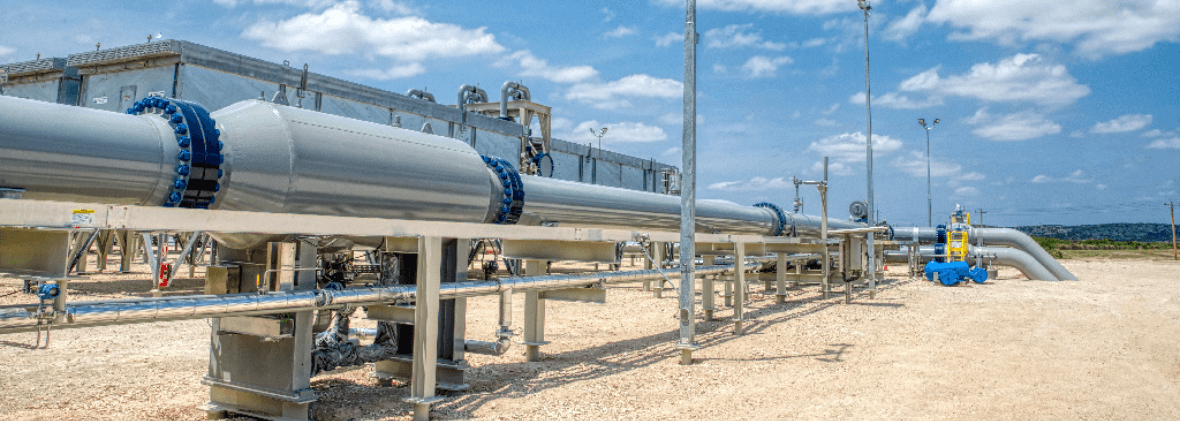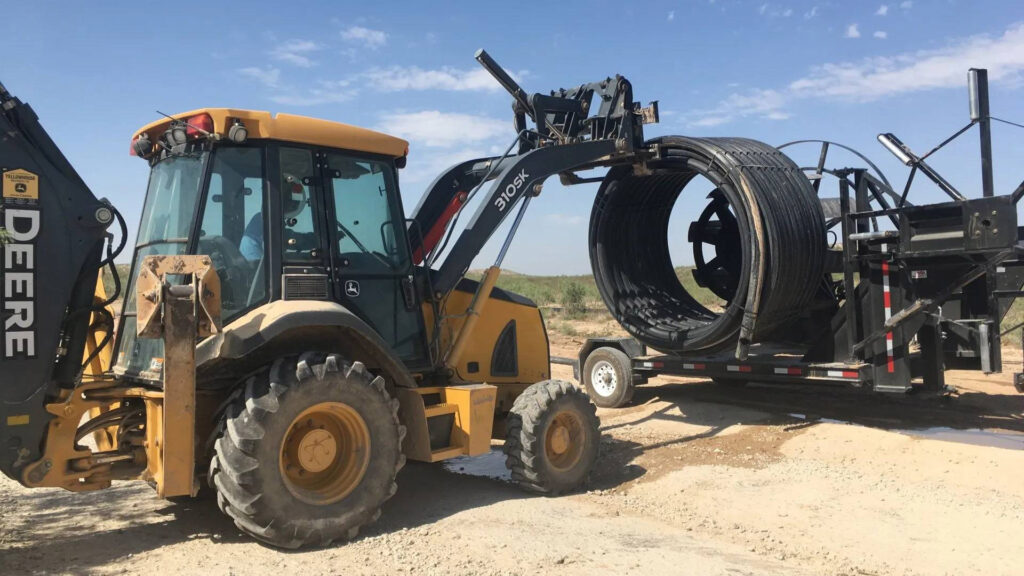Superior Rentals near me: where to locate the most reliable rental services
A Comprehensive Overview to the Various Kinds of Oil Field Equipment and Pipeline Equipment Available
The oil and gas industry counts greatly on specific devices for effective removal and transportation. Numerous kinds of equipment, from drilling rigs to storage tanks, play essential roles in this complicated process. Each item of tools offers unique features that contribute to general functional success. Recognizing these parts is vital for anyone involved in the industry. As the industry progresses, so as well do the innovations that sustain it. What improvements are on the horizon?

Drilling Rigs: The Foundation of Oil Exploration
Drilling rigs act as the important equipment in the domain of oil expedition, allowing firms to accessibility hydrocarbon gets hidden deep beneath the Earth's surface area. These rigs come in numerous types, consisting of land rigs, offshore rigs, and mobile devices, each created to run in certain environments. Geared up with innovative technology, drilling rigs can penetrate geological formations with precision, guaranteeing efficient source extraction. The structural stability and functional capacities of these rigs are important, as they must endure severe problems and substantial stress. Moreover, the selection of an exploration rig impacts the overall job price and timeline, making it a vital consideration for oil business looking for to optimize their exploration efforts and take full advantage of performance in their operations.
Pumps: Vital for Liquid Motion
In the oil extraction procedure, the duty of pumps is substantial, promoting the movement of liquids throughout numerous phases of production. Pumps are vital for delivering petroleum, water, and various other fluids from below ground tanks to the surface and after that via pipes to refineries. They are available in various types, including centrifugal, positive variation, and completely submersible pumps, each serving certain purposes based upon the liquid attributes and functional demands. Centrifugal pumps are generally used for their effectiveness in high-flow applications, while favorable variation pumps master handling viscous liquids. The option of pump effects overall efficiency, operational safety and security, and maintenance costs. Correct option and maintenance of pumps are crucial for enhancing production and decreasing downtime in oil field operations.
Valves: Managing Circulation and Pressure

Valves play a vital role in taking care of the flow and stress of fluids within oil fields and pipes. Different sorts of valves serve unique applications, each created to accomplish specific functions essential for effective operation - Superior Rentals midland. Comprehending the features and uses these shutoffs is crucial for maximizing system efficiency and safety and security
Kinds of Valves
Important elements in oil field procedures, shutoffs play an essential function in managing the circulation and pressure of fluids within pipelines and equipment. Various types of shutoffs are made use of to fulfill the varied requirements of oil and gas production. Common types include gate shutoffs, which give a straight-line circulation and very little stress drop; globe valves, known for their strangling capacities; and round shutoffs, identified for their fast on/off control. Additionally, check valves stop heartburn, while butterfly shutoffs supply a lightweight service for controling flow. Each valve kind is designed with details products and setups to stand up to the rough problems typically found in oil areas, making certain integrity and effectiveness in operations. Understanding these kinds is vital for effective system monitoring.
Valve Applications and Features
While various kinds of valves offer unique functions, their primary applications focus on regulating flow and stress within oil and gas systems. Valves such as entrance, globe, and round valves control fluid motion, ensuring peak efficiency and safety. Gateway valves are generally made use of for on/off control, providing very little flow resistance. Globe shutoffs, on the other hand, offer specific circulation guideline, making them suitable for strangling applications. Sphere valves are preferred for their quick procedure and limited sealing abilities. Additionally, pressure relief shutoffs are essential for preventing system overpressure, safeguarding devices stability. In general, the ideal choice and application of valves improve functional effectiveness, making certain the dependable transportation of oil and gas with pipes and handling centers.
Compressors: Enhancing Gas Transportation
Compressors play an essential role in the efficient transportation of all-natural gas, ensuring that it relocates efficiently with pipes over fars away. These tools raise the stress of gas, permitting it to get over friction and elevation modifications within the pipeline system. Additionally, compressors assist in the balancing of supply and need, accommodating variations in intake and manufacturing prices. Various kinds of compressors are utilized in the market, consisting of centrifugal, reciprocating, and rotary screw compressors, each offering unique advantages based upon the operational requirements. Normal maintenance of these compressors is important to take full advantage check here of efficiency and decrease downtime, eventually contributing to a trusted gas transportation network. Their important feature emphasizes the significance of compressors in the general oil and gas framework.
Storage Tanks: Safe and Effective Fluid Management
Efficient transportation of all-natural gas counts on various sustaining systems, one of which is the appropriate monitoring of tank. These storage tanks play a necessary function in safely having liquids, ensuring that functional efficiency is kept while decreasing environmental dangers. Built from resilient materials, they are developed to stand up to high pressures and destructive components. Effectively sized and tactically located, tank facilitate the smooth flow of natural gas and various other fluids, stopping traffic jams in supply chains. Routine maintenance and tracking are necessary to find leakages or structural problems, advertising safety and security and conformity with regulative standards. Eventually, the reliable management of tank is vital for the general honesty and integrity of the oil and gas industry's liquid handling systems.
Pipeline Systems: Facilities for Transportation
Pipeline systems act as the foundation of the oil and gas market, helping with the reliable transport of hydrocarbons over huge distances. These systems include numerous elements, consisting of pipelines, valves, pumps, and compressors, all carefully developed to assure seamless flow. The products used in pipeline construction, usually steel or high-density polyethylene, are selected for sturdiness and resistance to deterioration. Pipeline networks can extend throughout land and water, connecting manufacturing sites to refineries and circulation facilities. In addition, progressed modern technology makes it possible for real-time monitoring of flow rates and stress degrees, boosting operational performance. The critical positioning of these pipelines lessens ecological influence while making the most of resource availability, consequently playing a vital duty in meeting power needs internationally.
Security Equipment: Guaranteeing Worker and Environmental Security
The procedure of pipeline systems, while essential for energy transportation, also offers considerable security obstacles for workers and the atmosphere. Safety devices plays a significant function in reducing these threats. Personal safety devices (PPE) such as helmets, gloves, and non-slip shoes safeguards workers from physical threats. Furthermore, gas detection systems keep an eye on for leakages, ensuring that unsafe compounds do not position a danger to employees or the bordering environment. Emergency situation shutdown systems are vital for quickly stopping operations during a dilemma, preventing prospective disasters. Spill control materials, consisting of absorbents and obstacles, are essential for reducing environmental influence. Generally, buying comprehensive safety and security tools is essential for keeping operational honesty and safeguarding both employees and the environment in the oil and gas industry.

Often Asked Concerns
Just how Do I Pick the Right Oil Field Equipment for My Task?
Selecting the right oil field tools includes examining job specifications, budget restraints, and functional requirements. Take into consideration aspects such as devices dependability, compatibility with existing systems, and the distributor's online reputation to ensure peak efficiency and security.
What Are the Maintenance Needs for Oil Field Equipment?
Upkeep needs for oil area devices include routine inspections, lubrication, and timely repairs. Operators needs to additionally abide by maker standards, display efficiency metrics, and assurance compliance with security policies to boost longevity and effectiveness.

Just How Can I Guarantee Compliance With Environmental Rules?
To ensure conformity with ecological regulations, companies need to carry out regular audits, implement best techniques, purchase training, keep appropriate documents, and stay upgraded on regulation (Superior rentals squeeze tools). Cooperation with environmental agencies can also improve adherence to regulations
What Is the Typical Lifespan of Pipeline Equipment?
The ordinary life-span of pipeline tools generally ranges from 20 to half a century, relying on elements such as material top quality, ecological conditions, and maintenance methods. Regular assessments can significantly influence longevity and operational efficiency.
Just how Do I Securely Deliver Oil Field Equipment to Remote Locations?
Delivering oil area devices to remote places needs cautious preparation, consisting of path evaluation, protecting authorizations, utilizing suitable cars, and making certain safety and security protocols are adhered to. Proper training and communication among staffs are crucial for effective transport.